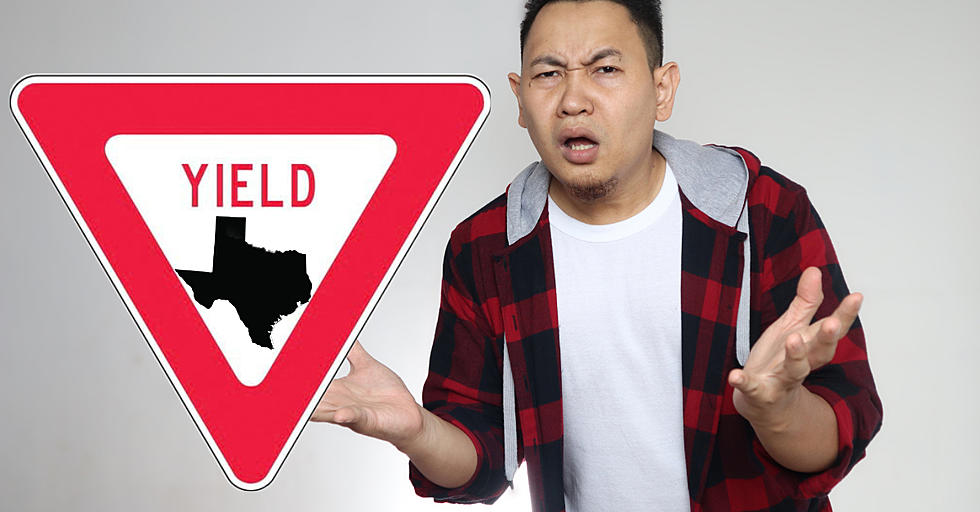
Stop or Go? What Does a “Yield” Sign Mean In Texas?
Nothing is more annoying than following a driver who stops at every "yield" sign. It probably wouldn't be so bad if those same people came to a complete stop when they saw a "stop" sign.
In talking with friends over drinks, I noticed that there were some varied opinions about what exactly you are supposed to do at a yield sign in Texas. One of my friends says stopping at a yield sign is illegal. He says it is covered in the traffic laws that deal with impeding the flow of traffic.
Technically, he is not wrong. If a driver stops at a yield sign unnecessarily or does so in a way that creates a hazard or disrupts the flow of traffic, they could potentially be cited for impeding the flow of traffic or creating a traffic hazard depending upon the circumstances.
Texas Transportation Code Section 545.363 states that a driver may not impede the normal flow of traffic by driving too slowly unless the slow driving is necessary for safety reasons, including observing a "yield" sign. Slow driving is ok. Stopping, not necessarily.
If a driver stops unnecessarily or creates a hazard while approaching a yield sign, they may be in violation of the impeding the flow of traffic law.
The driver who stops at a "yield" sign may also be in violation of the law pertaining to the proper action to take when encountering a "yield" sign.
Section 544.010 of the Transportation Code says that a driver facing a yield sign shall:
(1) slow to a speed that is reasonable under the existing conditions; and
(2) yield the right-of-way to a pedestrian or vehicle in the intersection or approaching on another highway or street closely enough to constitute an immediate hazard to the driver."
That means you should not just travel through the yield sign at posted speeds either. You must slow down and ascertain whether you must yield to a pedestrian or other vehicles approaching a yield sign. They can proceed; you must allow them to do so. Slowing down to ensure you have time to execute the proper due diligence would then be implied.

